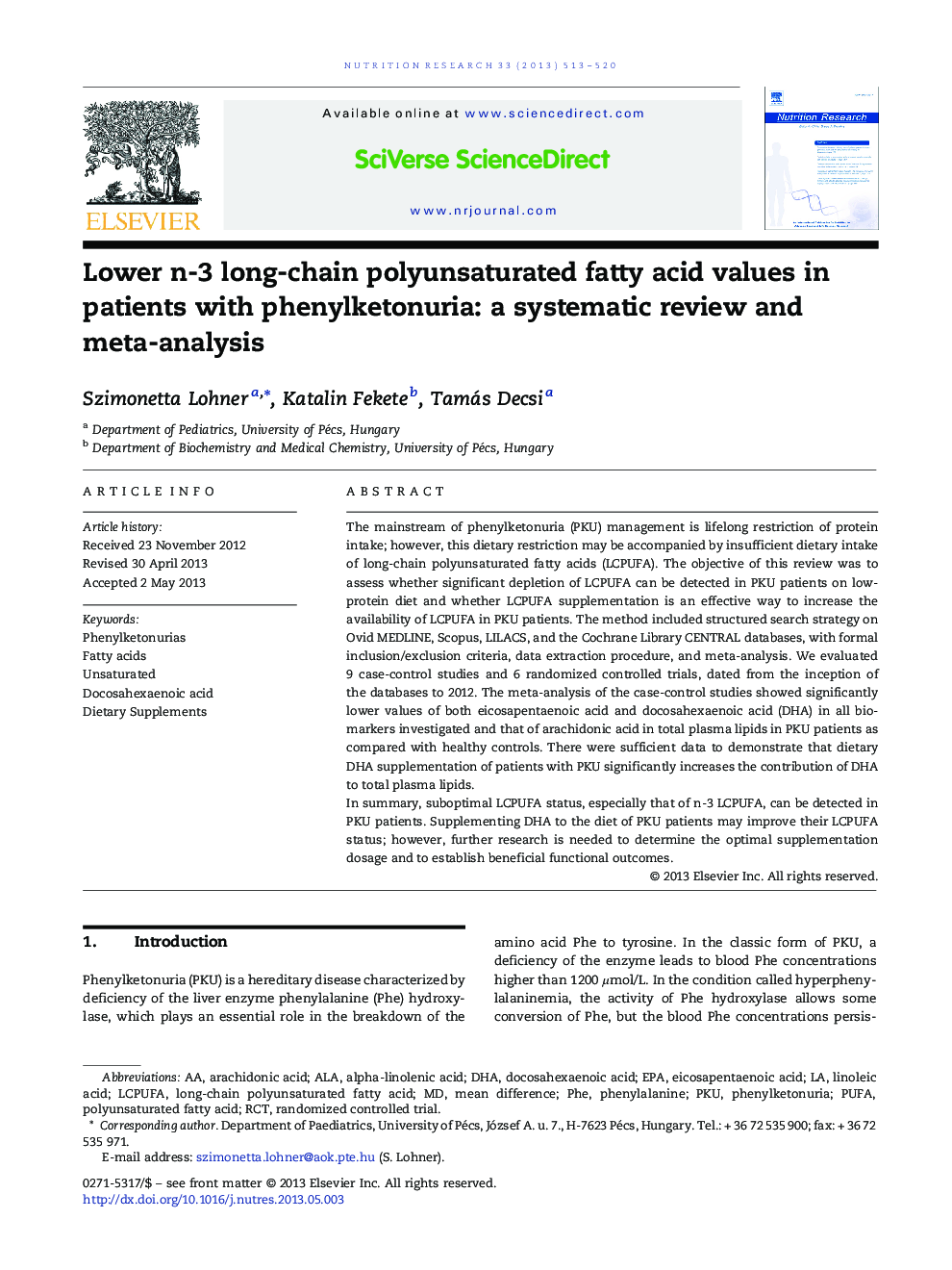| Article ID | Journal | Published Year | Pages | File Type |
|---|---|---|---|---|
| 2808974 | Nutrition Research | 2013 | 8 Pages |
The mainstream of phenylketonuria (PKU) management is lifelong restriction of protein intake; however, this dietary restriction may be accompanied by insufficient dietary intake of long-chain polyunsaturated fatty acids (LCPUFA). The objective of this review was to assess whether significant depletion of LCPUFA can be detected in PKU patients on low-protein diet and whether LCPUFA supplementation is an effective way to increase the availability of LCPUFA in PKU patients. The method included structured search strategy on Ovid MEDLINE, Scopus, LILACS, and the Cochrane Library CENTRAL databases, with formal inclusion/exclusion criteria, data extraction procedure, and meta-analysis. We evaluated 9 case-control studies and 6 randomized controlled trials, dated from the inception of the databases to 2012. The meta-analysis of the case-control studies showed significantly lower values of both eicosapentaenoic acid and docosahexaenoic acid (DHA) in all biomarkers investigated and that of arachidonic acid in total plasma lipids in PKU patients as compared with healthy controls. There were sufficient data to demonstrate that dietary DHA supplementation of patients with PKU significantly increases the contribution of DHA to total plasma lipids.In summary, suboptimal LCPUFA status, especially that of n-3 LCPUFA, can be detected in PKU patients. Supplementing DHA to the diet of PKU patients may improve their LCPUFA status; however, further research is needed to determine the optimal supplementation dosage and to establish beneficial functional outcomes.
